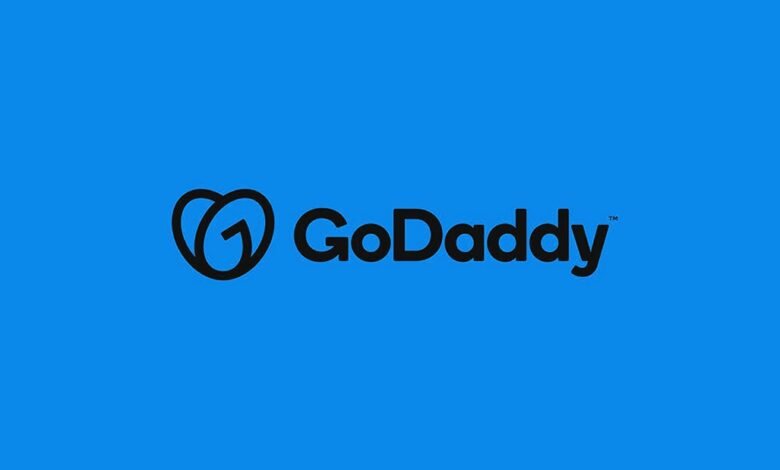
When it comes to web hosting services, few names are as widely recognized as GoDaddy. With over two decades in the industry, GoDaddy has built a massive customer base and a solid brand reputation. But in 2025, with newer, more agile competitors rising fast, the big question is, is GoDaddy hosting still worth it, or is it finally time to move on?
In this in-depth GoDaddy hosting review, we analyze the platform’s performance, features, pricing, security, and customer support. We also compare GoDaddy with some of its top competitors to help you make an informed decision.
A Brief Overview of GoDaddy
Founded in 1997, GoDaddy started as a domain registrar and quickly grew into a full-fledged web hosting provider. Today, the company offers a wide range of services, including shared hosting, VPS hosting, dedicated servers, WordPress hosting, and even website building tools.
As of 2025, GoDaddy hosts over 20 million websites globally and manages more than 80 million domain names. Its longevity in the market is a testament to its adaptability and extensive service offerings.
Performance and Uptime
One of the most critical aspects of any web hosting service is its performance. In 2025, GoDaddy maintains a respectable average uptime of 99.97%, which translates to minimal downtime. This is crucial for businesses and e-commerce websites that rely on constant availability.
When it comes to speed, GoDaddy has improved significantly. Recent updates to its server infrastructure and CDN (Content Delivery Network) integration have enhanced load times across the board. However, it still lags slightly behind top-tier providers like SiteGround and A2 Hosting in this regard.
Hosting Plans and Pricing
GoDaddy offers a broad range of hosting plans tailored to different needs:
- Shared Hosting: Starting at $5.99/month, suitable for beginners and small websites.
- WordPress Hosting: Optimized for WordPress with plans beginning at $8.99/month.
- VPS Hosting: Starts at $6.99/month, offering more resources and control.
- Dedicated Servers: Premium plans starting at $129.99/month for large enterprises.
While the introductory prices are competitive, GoDaddy is notorious for its steep renewal rates. This pricing model can be off-putting, especially for budget-conscious users. Furthermore, many essential features like backups and SSL certificates come at an additional cost, whereas competitors often include these in their base plans.
Features and Tools
GoDaddy provides a suite of features and tools aimed at simplifying website management:
- cPanel Access: Available on most plans for intuitive control.
- 1-Click App Installations: Supports WordPress, Joomla, Drupal, and more.
- Website Builder: A beginner-friendly drag-and-drop editor.
- Email Hosting: Professional email services are integrated into most plans.
Despite the variety, GoDaddy’s feature set is somewhat basic compared to hosts like Bluehost and Hostinger, which often bundle additional performance-enhancing tools and premium themes.
Security Measures
Security is another area where GoDaddy has made strides but still has room to grow. The company offers:
- Free Malware Scans
- DDoS Protection
- 24/7 Security Monitoring
However, essential features like SSL certificates, daily backups, and firewall protection are often add-ons. This means users may need to pay extra for comprehensive security, which can significantly increase the overall cost.
Customer Support
Customer support is a mixed bag with GoDaddy. On the positive side, they offer 24/7 support via chat and phone, along with a comprehensive knowledge base. However, response times can be inconsistent, and users often report scripted or generic answers.
Compared to companies like SiteGround, which offers stellar live chat support, GoDaddy falls short in delivering a truly exceptional support experience. That said, their extensive online documentation can help tech-savvy users troubleshoot most common issues on their own.
User Experience and Interface
GoDaddy’s user dashboard has been redesigned over the years to improve navigation and usability. In 2025, the interface is clean, mobile-responsive, and relatively easy to navigate even for beginners.
The inclusion of guided setups and tutorials makes it easier for users to get started. However, upselling remains a frequent occurrence throughout the dashboard, which can be frustrating for users looking for a streamlined experience.
GoDaddy vs Competitors
To assess whether GoDaddy is still worth it, we must compare it to other top players in the market:
- Bluehost: Offers better WordPress integration, free SSL, and a more feature-rich basic plan.
- SiteGround: Superior speed and customer support, but at a slightly higher price.
- Hostinger: More affordable, with faster load times and a generous set of features.
- A2 Hosting: Known for blazing fast speeds and excellent developer tools.
While GoDaddy holds its ground in brand recognition and reliability, it often loses out in value for money and advanced feature offerings.
Pros and Cons of GoDaddy Hosting
Pros:
- Strong brand and market presence
- Wide variety of hosting options
- 24/7 customer support
- User-friendly dashboard
Cons:
- Higher renewal prices
- Basic features come at extra cost
- Average performance compared to top competitors
- Aggressive upselling tactics
Ideal Use Cases
GoDaddy is a solid choice for:
- Beginners looking for an all-in-one platform
- Small businesses needing a basic web presence
- Users who value brand reliability over advanced features
However, developers, performance enthusiasts, and budget-conscious users may find better value elsewhere.
Final Verdict: Is GoDaddy Hosting Still Worth It in 2025?
In 2025, GoDaddy remains a viable hosting solution, particularly for users seeking simplicity, brand trust, and a wide array of services. Its platform is reliable and beginner-friendly, making it ideal for small businesses and first-time website owners.
However, the premium pricing, lack of included features, and average performance mean that more experienced users or those running high-traffic sites may benefit from looking elsewhere. With competitors offering more at lower prices, it’s clear that GoDaddy is no longer the default go-to for everyone.
If you prioritize brand reputation and ease of use, GoDaddy may still serve you well. But if you’re after top-tier performance, affordability, and advanced features, it might be time to explore other options.







